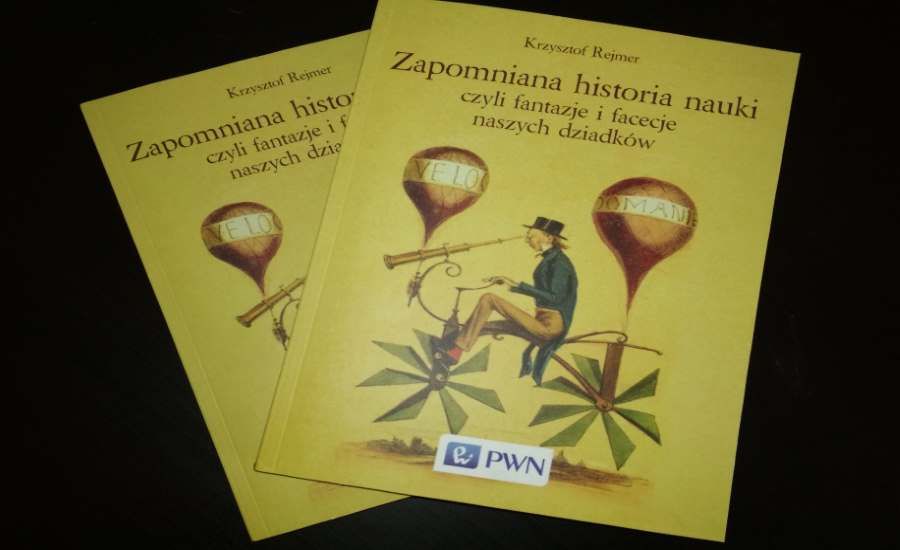"Forgotten history of science. " – a must-see item for any science enthusiast
PWN Science Publishing House has placed in the hands of readers an unusual item that will interest any enthusiast of science and its history. "Forgotten history of science, or the fantasies and fictions of our grandparents" are dozens of stories describing the toils and tribulations of well-known and lesser-known historical figures who contributed to the development of our civilization out of passion, desire for profit or completely by accident.
“The forgotten history of science, or the fantasies and facets of our grandparentsów” this cropór interesting, subversive essayóin describing lesser-known scientific facts. Author – Krzysztof Rejmer – shows how long and arduous a road had to be traveled so that we could enjoy the benefits of coómodern technology.
Krzysztof Rejmer in the publication put these lesser-known stories about the surprising aspects of theóin human activity. It showed science with its blind alleys, curiosities, paranoia, also the personality traits (the positive ones and the embarrassing ones) of people próbirthing the development of knowledge and technology.
Thanks to the book, the reader has a chance to get to know uncommon and colorful personalities. The author does not shy away from the subjectóin controversy, trying to show their psychological, social or historical conditions. The book is intended for a wide range of readersóin those interested in science, its history, interesting figures of people who create civilization, but róAlso its canyons and blind alleys.
Krzysztof Rejmer studied physics at the Adam Mickiewicz University in Poznan and at the University of Warsaw, where he defended his doctoral thesis in 1996. In 1986–2010 worked at the University of Warsaw (Department of Field Theory and Statistical Physics, and then the Department of Condensed Matter Theory). He is the author of scientific papers, dwóch textbookóin physics for high school and numerous articlesóin popular science. He has also published a volume of poems. For PWN, he translated three volumes of Landau’s course in theoretical physics („Statistical physics” cz. 1 and 2 and „Physical kinetics”). He is interested in Central European history, Czech and French literature.
“One of the memories of my early childhood is a monthly Horizons of Technology subscribed to by his father. Like the protagonist of a Schulz short story The Book absorbing the story of Anna Csillag and her miracle remedy for hair growthów, I used to read the column with bumps on my face back then Fantasies and Faceties of Our Grandfathersów. (I still remember the drawings depicting majestic zeppelins and giant steam engines, or Mróin bowler hats (as if taken straight out of a paintingóin Magritte'a) pedaling with some kind of strange ferocity to make theób move the wings of an ornithopterów” – recalls Rejmer.
„Dr. Rejmer’s book introduces the reader to a world of cognitive optimism, now unknown to many, characteristic of the 19th century. Reading it, we are transported into a world similar to the one created by Cyrus Smith of Mysterious Island or Captain Nemo of 20,000 Leagues Under the Sea. (…) it is extremely nice to be in the company of a hero for a whileóIn this book, któers were able to believe throughout their lives in the cognizance and possibility of taming the world. However, while Julius Verne invented the world and the hero of theóin it, in Krzysztof Rejmer’s book we meet real living and acting people. Their steadfast optimism may impress and even encourage abandonment – at least intellectually – the limits of so-called life wisdom” – wrote in a review „The forgotten history of science…” Marek Kordos, mathematician, historian and popularizer of science, founder and editor-in-chief of the Delta monthly magazine.
Book “The forgotten history of science, or the fantasies and facets of our grandparentsów” can be purchased on the pages of the PWN bookstore.
